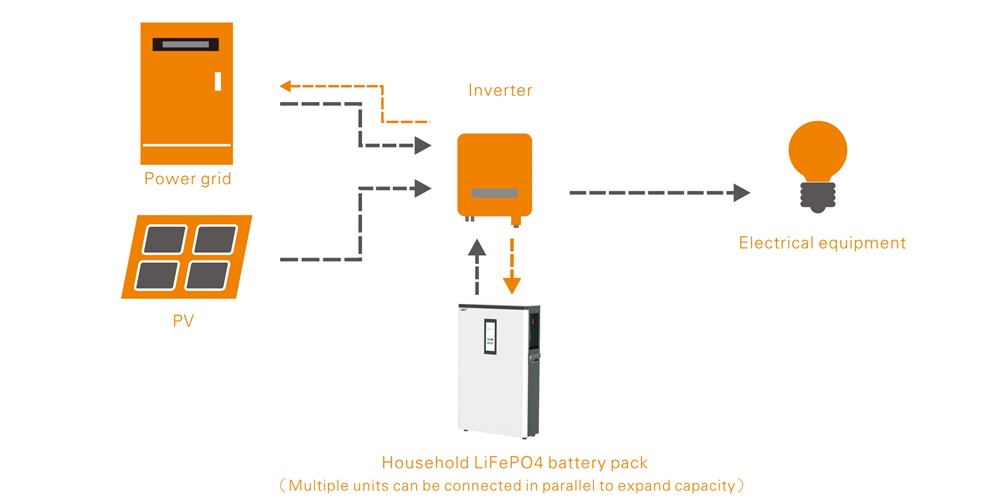 |
Welcome To Evlithium Best Store For Lithium Iron Phosphate (LiFePO4) Battery |
 |

Before we dive into the specifics, let's establish a common ground. Inverters are essential components in solar power systems. They convert direct current (DC) electricity produced by solar panels into alternating current (AC) electricity that powers our homes and businesses.
Traditional inverters have been around for quite some time. They perform the primary function of converting DC to AC, but they lack some advanced features.
Hybrid inverters, on the other hand, are a more recent innovation. They offer a combination of features, making them a versatile choice for those looking to maximize the benefits of their solar systems.
Efficiency Matters
Efficiency is a critical factor in any solar power system. Traditional inverters are known for their lower efficiency when compared to their hybrid counterparts.
Hybrid inverters stand out with their ability to efficiently integrate with energy storage solutions like batteries. This feature helps in storing excess energy for later use.
Power Management and Grid Interaction
Traditional inverters primarily feed excess energy back into the grid, which might not be financially rewarding. Hybrid inverters, however, provide more options, such as selling excess energy back to the grid or storing it for personal use.
Hybrid inverters can also intelligently manage power during blackouts or grid failures, allowing you to keep your essential appliances running.
Cost Considerations
While hybrid inverters offer more advanced features, they come at a higher initial cost compared to traditional inverters. This cost needs to be weighed against the long-term benefits.
To make an informed choice, it's essential to calculate the potential ROI for both types of inverters based on your energy consumption and local electricity rates.
Environmental Impact
The environmental impact of your choice matters. Hybrid inverters, with their energy storage capabilities, can reduce your carbon footprint by optimizing energy usage.
Conclusion
In the debate of hybrid vs. traditional inverters, there is no one-size-fits-all answer. Your choice should depend on your specific energy needs, budget, and environmental concerns. While hybrid inverters offer advanced features and sustainability advantages, traditional inverters may be more cost-effective for some. Evaluate your priorities and consult with a solar energy expert before making your decision.
FAQs
FAQ 1: Are hybrid inverters compatible with all types of solar panels?
Hybrid inverters are compatible with most solar panels on the market. However, it's advisable to consult the inverter manufacturer for specific compatibility details.
FAQ 2: Can traditional inverters be upgraded to hybrid inverters?
No, traditional inverters cannot be upgraded to hybrid inverters. They are fundamentally different in their design and capabilities.
FAQ 3: Are hybrid inverters more challenging to install than traditional inverters?
Hybrid inverters may require more expertise during installation due to their advanced features. It's recommended to hire a professional solar installer for both types.
FAQ 4: Do hybrid inverters require more maintenance?
Hybrid inverters may have slightly higher maintenance requirements due to their integrated battery systems. Regular inspections and maintenance are essential for optimal performance.
FAQ 5: How long is the lifespan of hybrid and traditional inverters?
Both hybrid and traditional inverters typically have a lifespan of 10 to 15 years, depending on the quality of the equipment and maintenance.
Edit by editor
Last Update:2023-09-23 10:46:05
All Rights reserved © 2026 Evlithium Limited